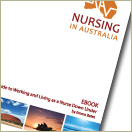|
Types of Nursing CertificatesNursing is one of the fastest growing jobs in health care today. With an aging baby boomer population demanding increasing amounts of care and medical assistance, folks with nursing certificates are in high demand, with analysts predicting that the trend will continue for many years to come. For those with an objective of entering the health care field as a nurse, there are several nursing certifications that require different amounts of training and offer their own levels of responsibility and pay scales. The three main nursing certificates available are nurse's aide, licensed practical nurse (LPN), and registered nurse (RN).
Certified Nurse's Aide (CNA) or Nursing Assistant (NA)
Certified nursing assistants have the shortest educational requirements and the lowest level of pay and responsibilities when compared to other nurses. A nurse's aide will typically study in a six to twelve week curriculum, although many programs are offered concurrently with on-the-job training in a hospital. With the lowest skill requirements, nursing assistants often learning new skills while working, and adapt to the needs of other health care professionals. Nurse's aids monitor vital signs, help patients to eat, change clothing, and clean themselves, move patients between rooms, and perform other everyday tasks. They will usually work under the supervision of an RN or LPN. Some students working toward an LPN or RN nursing certificate may choose to find work as a nurse's aide as a way to earn some money during their studies and to gain valuable job experience.
Licensed Practical Nurse (LPN) or Licensed Vocational Nurse (LVN)
Licensed practical nurses (LPNs) make up one of the largest sectors of health care workers in hospitals or health care settings. LPNs study for one to two years and are able to work more independently than nurse's aids, although still under an RN’s or doctor's supervision.
Licensed vocational nurses perform many of the tasks that could be handled by a nurse's aid or an RN, but fill a unique niche by having closer and more consistent interaction with patients. It is typically an LPN who takes care of patients' daily needs and monitors their progress and vital signs for the doctor. LPNs can be found in all medical and health care settings, from the ER and surgery to prenatal care, geriatrics, palliative care, home care, and more.
Registered Nurses (RN)
Working as a registered nurse, or RN, offers the highest levels of nursing opportunities and responsibilities. RNs study for three or four years, in either a Bachelor of Science Nursing (BSN) program or a shorter specialized RN curriculum. At the end of these studies, a prospective nurse must complete the NCLEX examination to be certified as a registered nurse. In the vast majority of health care settings, RNs work with more independence and responsibility than a nurse's aid or an LPN. They may take on more administrative or management roles, and their training and practice is more involved with patient treatment plans due to their greater knowledge and medical expertise. An RN might have several LPNs or nurse's aides working under his or her supervision. Additional nursing certificates exist that offer training in different areas of specialization, from anesthesia to emergency care to neurosciences, but these are typically available only after a nurse has achieved RN certification but are not required for nurses to practice.
Given the shortage of doctors, shortage of nurses, and expanding demands in the health care sector, the nursing jobs outlook is exceptional and nursing certifcates provide great career opportunities.
Please visit the home page for more information on LPN nursing duties. |



